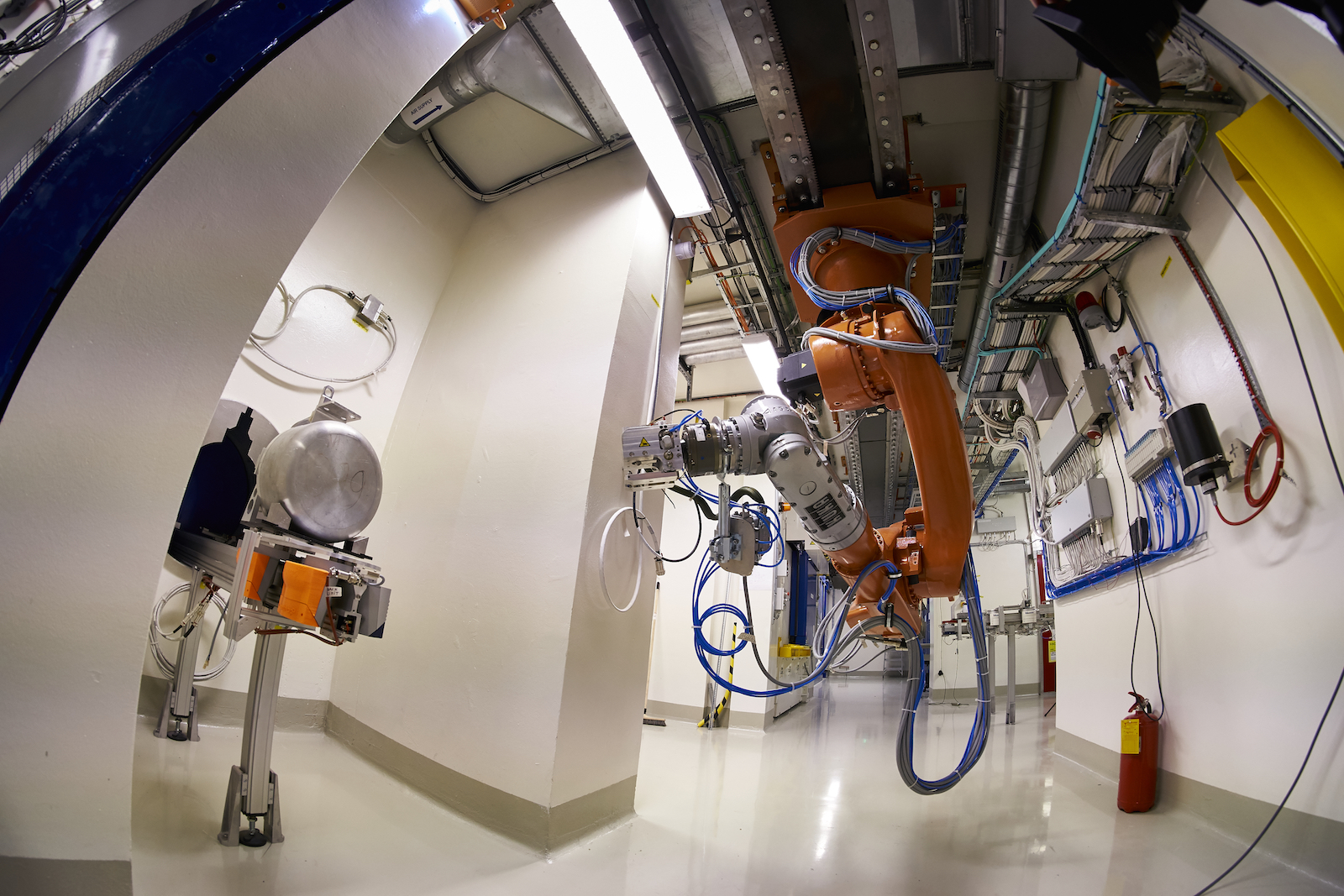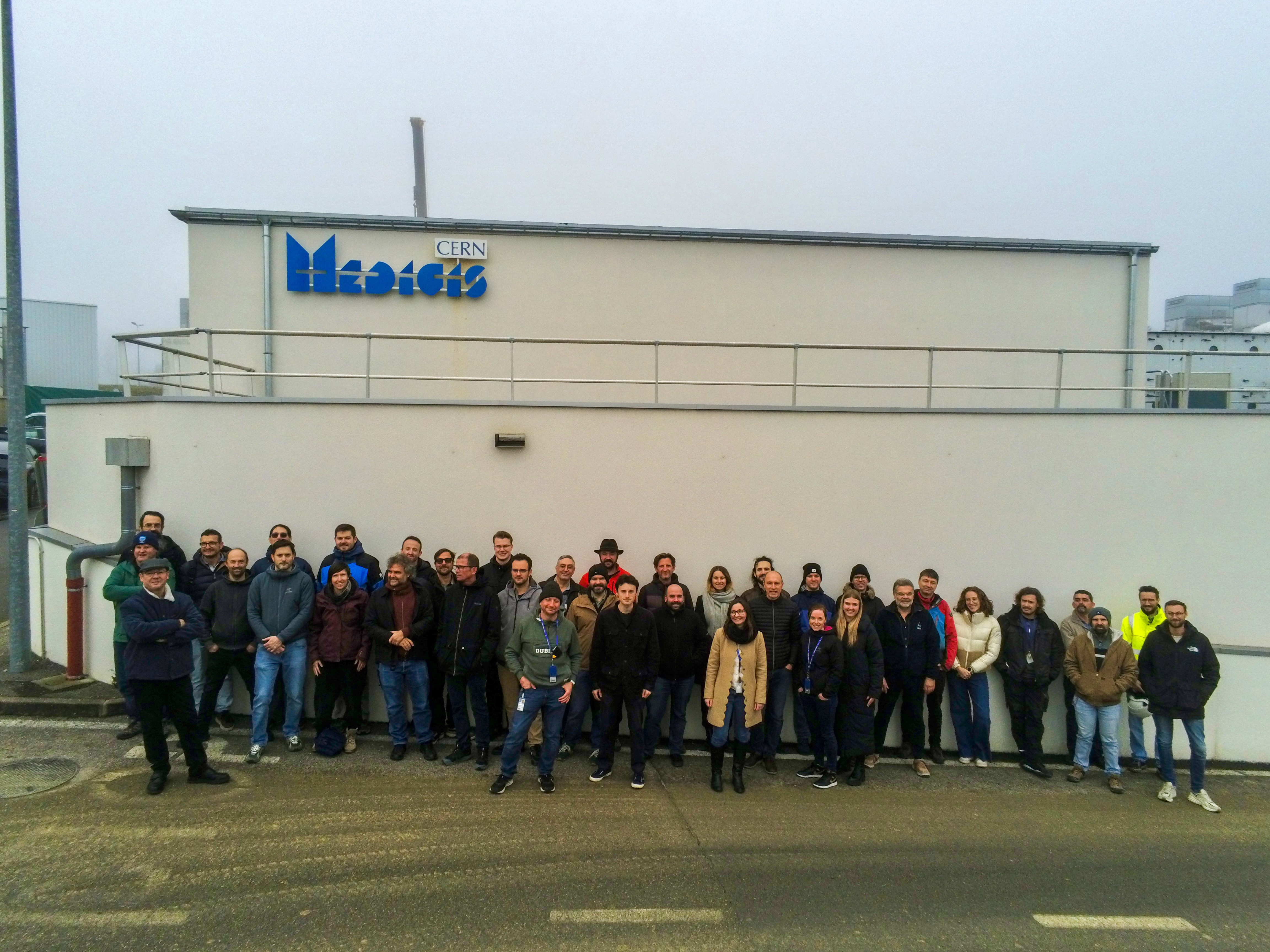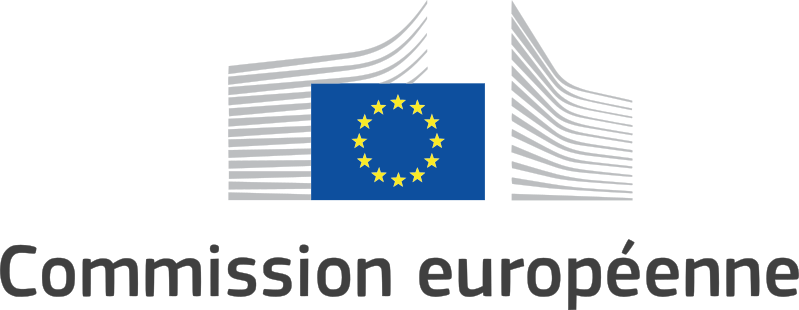OVERVIEW OF THE CERN-MEDICIS FACILITY
https://kt.cern/success-stories/cern-medicis-novel-isotopes-medical-research
CERN-MEDICIS (Medical Isotopes Collected from ISOLDE) is a unique facility designed to produce unconventional radioisotopes with the right properties to enhance the precision of both patient imaging and treatment. It will expand the range of radioisotopes available for medical research – some of which can be produced only at CERN – and send them to hospitals and research centres in Switzerland and across Europe for further study.
Initiated in 2010 by CERN with contributions from the CERN Knowledge Transfer Fund, private foundations and partner institutes, and also benefitting from a European Commission Marie Skłodowska-Curie training grant titled MEDICIS-Promed, MEDICIS is driven by CERN’s Isotope Mass Separator Online (ISOLDE) facility, which has been running for 50 years. In September 2017 CERN-MEDICIS entered the commissioning phase, and produced its first isotopes on 12 December 2017.
The CERN-MEDICIS Collaboration formally kicked off 2018 with the first board meeting at CERN and the signature of the Memorandum of Understanding. The Collaboration Board, composed of experts in medical isotope production and research, and nuclear medicine, provides recommendations on submitted projects.
During 2018, the facility delivered an increasing range of isotopes, shared between machine developments and approved projects. Notably, new isotopes were produced and new purity grades achieved, to be used for diagnostic and treatment modalities.
In 2018, of the sixteen projects submitted to the board, 12 were approved, while others are waiting for future upgrades of the facility. Two projects were completed in 2018: the production of 11C as a possible imaging ion for hadron therapy and 169Erbium as a pure betaemitting isotope, used in therapeutic applications. Others are progressing using theranostic isotope combinations, notably Terbium.
Today, a total of 32 projects have been approved by the members of the MEDICIS collaboration board.



